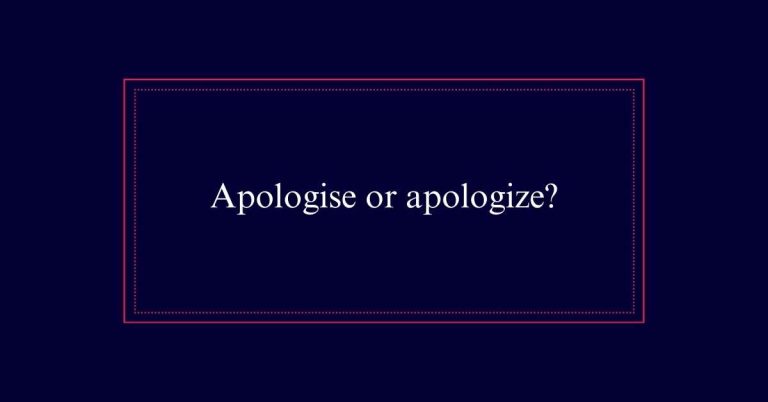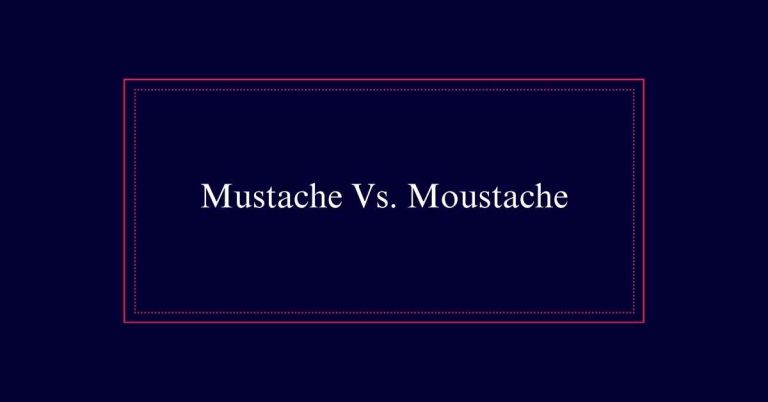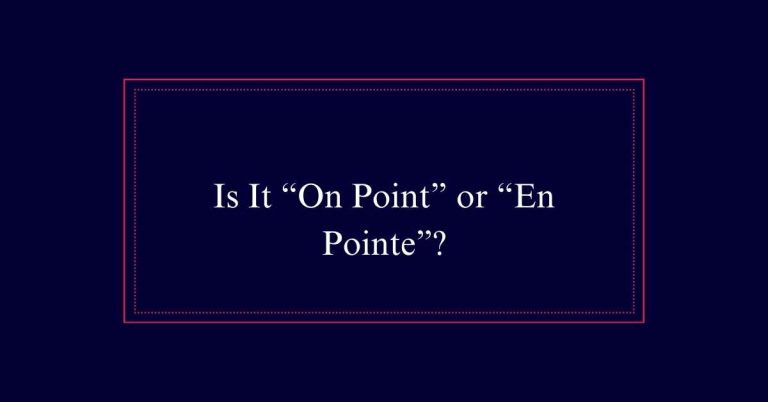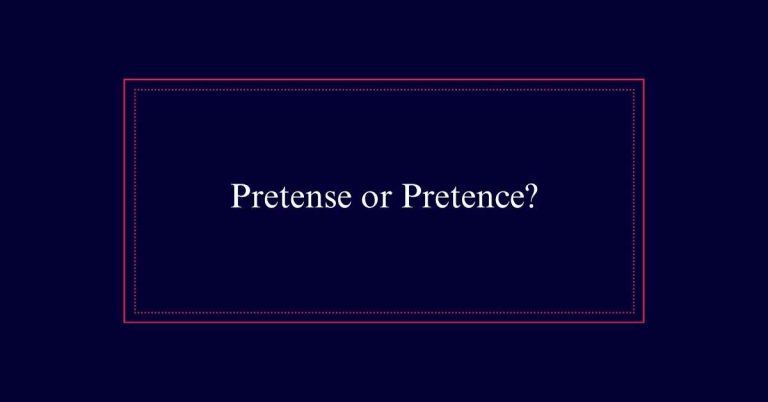Premier and Premiere: What’s the Difference?
The words ‘premier’ and ‘premiere’ have distinct meanings and uses. ‘Premier’ can be an adjective meaning first in rank or importance, or a noun referring to a prime minister. It is commonly used in contexts like politics and education. ‘Premiere’, on the other hand, refers to the first showing of a play, movie, or TV show and is widely used in the entertainment industry. Its use emphasizes the debut event of a production.
Meaning of Premier
The word ‘premier’ serves as both an adjective and a noun, each with distinct meanings. As an adjective, it means first, distinguished, prominent, or oldest. It often describes individuals or situations that are considered exceptional or leading. For example, someone might refer to Bryan Stevenson as a premier advocate for social justice.
When used as a noun, ‘premier’ is synonymous with prime minister, a title held by the head of government in many countries. Notable examples include the Premier of Western Australia and Premier Christy Clark of British Columbia.
Therefore, ‘premier’ can be applied in various contexts such as politics and education, signifying either excellence or leadership.
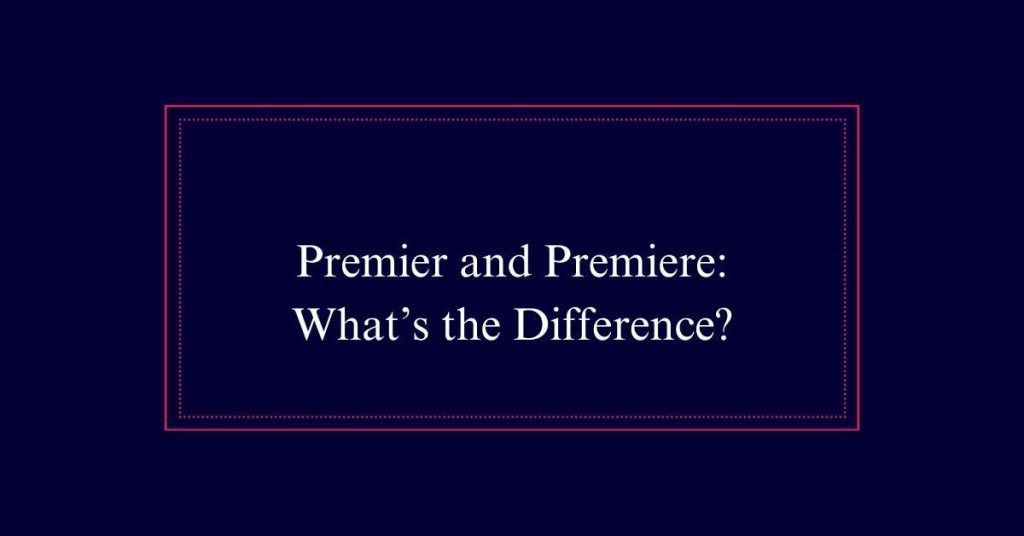
Using Premier
Understanding how to use ‘premier’ effectively involves recognizing its versatility as both an adjective and a noun. As an adjective, ‘premier’ denotes something of the highest rank or importance. For instance, it can describe a leading expert or the foremost event.
As a noun, ‘premier’ refers to a prime minister, the head of government in many countries. Examples include the Premier of Western Australia and Premier Christy Clark.
Here are three key points to remember:
- Adjective Usage: Describes prominence or distinction.
- Noun Usage: Synonymous with prime minister.
- Contexts: Common in politics, education, and other fields.
Mastering the usage of ‘premier’ enhances clarity and precision in communication.
Meaning of Premiere
Premiere signifies the inaugural showing of a theatrical production, movie, or television program. This term is widely used in the entertainment industry to mark the first public presentation of a new work.
When a film premieres, it often involves a special event attended by the cast, crew, and media. Television shows also have premieres, usually coinciding with the release of the first episode of a new season.
In the context of theater, a premiere refers to the first official performance of a play. The word ‘premiere’ highlights the importance and excitement surrounding the debut of a creative work.
It is a moment of introduction and celebration, setting the stage for its subsequent reception by audiences and critics alike.
Using Premiere
Utilizing the term ‘premiere’ correctly involves recognizing its specific applications in the entertainment industry. It primarily denotes the first public showing of a play, movie, or TV show.
As a noun, ‘premiere’ highlights the debut event, such as the premiere of a new blockbuster film.
As a verb, it describes the act of presenting a production for the first time.
To effectively use ‘premiere,’ consider these points:
- Context: Use it in relation to the entertainment industry.
- Form: Understand when to use it as a noun versus a verb.
- Certify: Certify it refers to the initial performance or showing.
Accurate usage of ‘premiere’ enhances clarity in writing about film, theater, and television events.
Historical Origins
Although both premier and premiere are commonly used in modern English, their roots trace back to French and Latin origins. The word ‘premier’ entered the English language in the fifteenth century. It came from the Old French word ‘premier,’ which means ‘first’ or ‘principal.’ This, in turn, is derived from the Latin word ‘primarius,’ meaning ‘chief’ or ‘principal.
The term ‘premiere’ has a slightly different history. It was adopted into English in the late nineteenth century from the French word ‘première,’ which means ‘first.’ This reflects its use in the context of first showings or debuts in the entertainment industry.
Both words share a common etymological root but have evolved to serve distinct functions in English.
Contextual Differences
With their shared etymological roots clarified, we can now explore the distinct contexts in which ‘premier’ and ‘premiere’ are used.
‘Premier’ is often associated with political and educational settings. For example, a country’s head of government may be referred to as the premier.
Conversely, ‘premiere’ is mainly used within the entertainment industry. It signifies the first public showing of a film, play, or television show.
To summarize their contextual differences:
- Premier: Used in political and educational contexts as an adjective or noun.
- Premiere: Used in entertainment contexts as a noun or verb.
- Usage: ‘Premier’ denotes prominence or rank; ‘premiere’ denotes an inaugural event.
Understanding these contexts guarantees the correct application of each term.
Practical Applications
To apply ‘premier’ and ‘premiere’ accurately, one must consider the context and meaning of each term.
Premier’ can describe something first in importance or time, such as ‘the premier educational institution.’ It may also refer to a prime minister, for example, ‘the premier of Canada.
In contrast, ‘premiere’ pertains to the first public performance of a show or movie. For instance, ‘the movie had its premiere last night’ or ‘the director will premiere his new film next month.’
Using ‘premier’ and ‘premiere’ correctly ensures precise communication, especially in formal writing or speech.
Enhancing Language Skills
Proper use of ‘premier’ and ‘premiere’ not only guarantees precise communication but also enhances overall language skills. These terms, though similar, have distinct uses that can enrich your vocabulary and writing. Mastering their differences can lead to:
- Improved Writing: Using the correct term demonstrates attention to detail, which is critical in professional and academic writing.
- Enhanced Reading Comprehension: Recognizing the proper context of each word aids in understanding complex texts and discussions.
- Better Oral Communication: Accurate word choice ensures clarity and reduces the risk of misunderstandings during conversations.
These benefits illustrate how a nuanced understanding of ‘premier’ and ‘premiere’ contributes significantly to linguistic proficiency.


